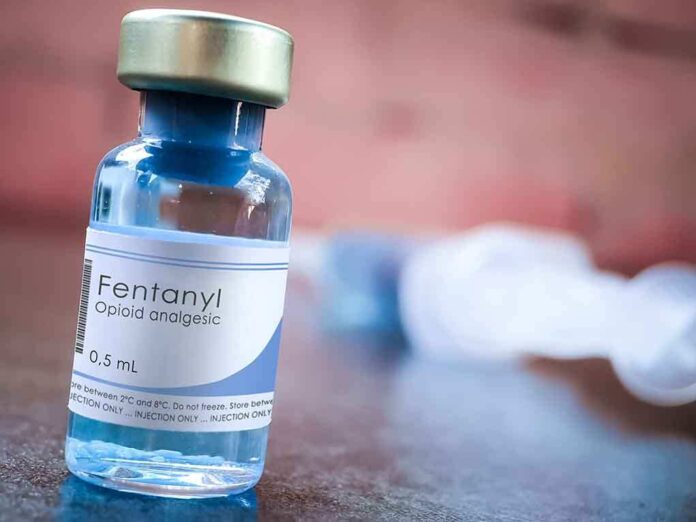
Mexico’s largest fentanyl seizure marks a pivotal step in the battle against drug cartels amid geopolitical tensions.
At a Glance
- Mexican forces seized over a ton of fentanyl, enough for 20 million doses.
- This major operation is part of President Sheinbaum’s anti-cartel strategy.
- The confiscation occurred before President-elect Trump’s inauguration.
- Seized fentanyl valued at nearly $400 million, emphasizing the operation’s impact.
Largest Fentanyl Seizure Marks New Era
Mexican security forces achieved their largest-ever synthetic opioid capture, confiscating over a ton of fentanyl in Sinaloa. This significant operation underscores the administration’s commitment to dismantling cartel networks, notably in areas controlled by the notorious Sinaloa Cartel. President Claudia Sheinbaum, leading this initiative, aims to disrupt the production and distribution of drugs that exacerbate violence across Mexico. The seized fentanyl alone could equate to 20 million doses, indicating the magnitude of potential harm averted.
Accompanying the fentanyl seizure were additional substances and equipment including chemical precursors, industrial mixers, and scales. This occurrence further highlights the systematic and extensive production processes employed by cartels. In separate operations, authorities uncovered additional drugs and firearms, leading to arrests that bolster the overall strategy against organized criminal enterprises. The operation’s timing before President-elect Donald J. Trump’s inauguration is seen as a strategic move, potentially aimed at enhancing binational cooperation on drug policy and security.
President Sheinbaum’s Strategic Calculations
President Sheinbaum’s strong measures contrast with predecessor Andrés Manuel López Obrador’s focus on addressing the root societal causes of violence. Her administration’s approach suggests a preference for more direct confrontation and enforcement to curb the influence of groups like the Sinaloa Cartel. Such actions also signify Mexico’s commitment to addressing US concerns regarding drug trafficking and migration, aiming to mitigate potential tensions including tariff threats posed by the incoming Trump administration.
Anticrime operations have culminated in significant arrests and drug seizures since Sheinbaum took office, with over 5,300 arrests and nearly 58 tons of drugs confiscated. This reflects a broader governmental shift toward prioritizing intelligence and federal coordination to enhance national security. As the administration continues its crackdown, the impact on international relations and internal stability remains a focal point for both nations involved in tackling shared challenges.
Mexico’s Secretary of Security @OHarfuch, reported the seizure of one ton of fentanyl in Sinaloa—enough to produce 20 million doses. This marks the largest fentanyl seizure in Mexico’s history.
As comparison, during Enrique Peña Nieto’s entire administration, authorities… https://t.co/CR9qk9KRsT
— Auden B. Cabello (@CabelloAuden) December 4, 2024
Broader Implications for US-Mexico Relations
The Sinaloa fentanyl seizure illustrates Mexico’s resolve in combating drug cartels and reinforces its standing as a critical partner in tackling narcotrafficking. As the US prepares for a transitional government under President-elect Trump, Mexico’s assertive actions may garner favorable diplomacy and joint strategies addressing mutual issues like drug trafficking and border security. This proactive stance reinforces a cooperative climate crucial for effective and enduring solutions.
This bilateral cooperation will be pivotal in sustaining momentum against the international drug trade, with the implications of Mexico’s stringent enforcement actions underpinning future security collaborations across borders. The world watches as both nations engage in their longstanding fight against the opioid crisis, emphasizing the need for continuous partnership and shared responsibility in enforcing comprehensive anti-drug strategies.












